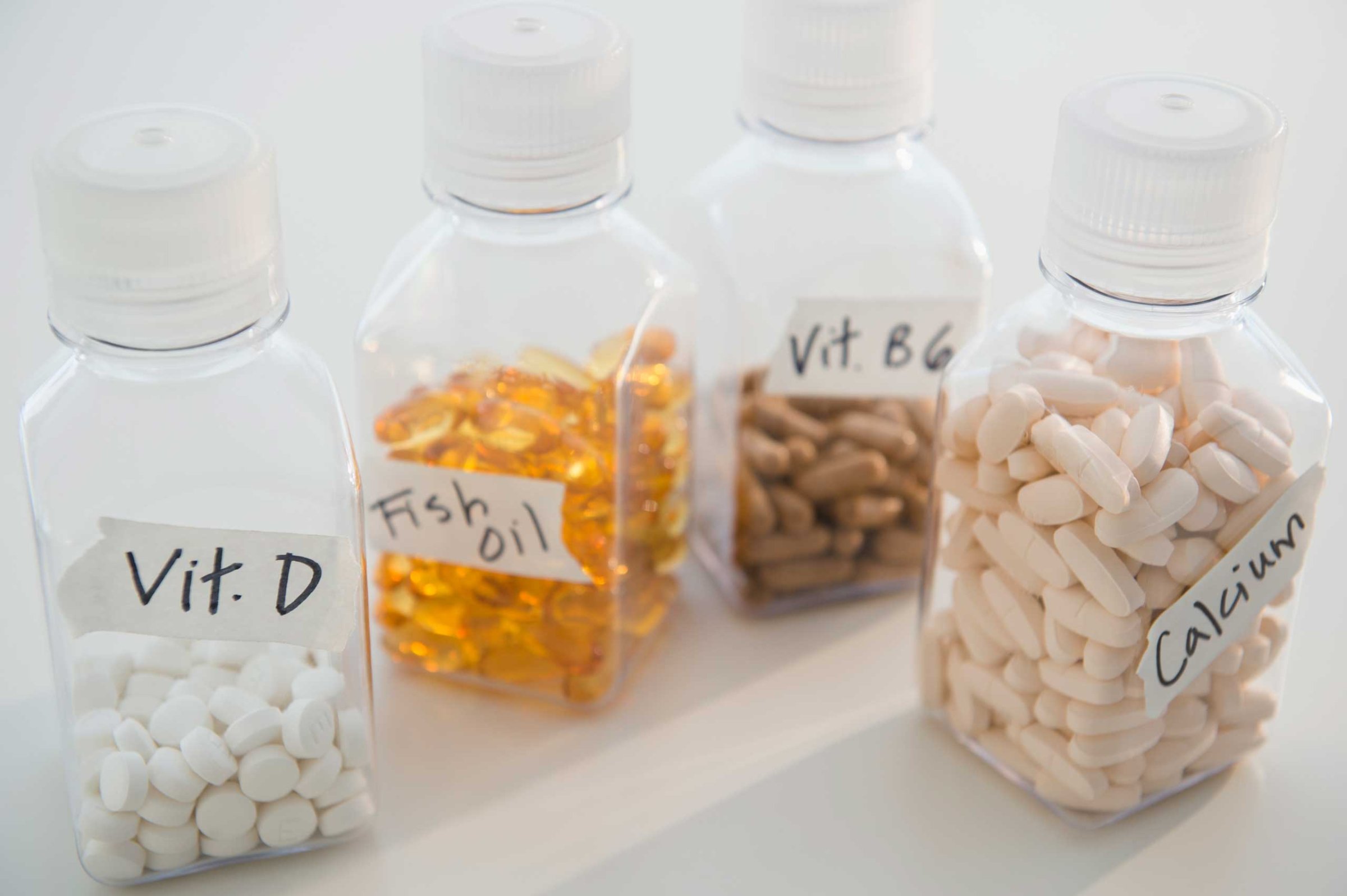
Does your diet need a little extra D? For researchers, it’s one of nutrition’s most vexing questions. “It’s the wild, wild west,” says Dr. JoAnn Manson, chief of preventive medicine at Brigham and Women’s Hospital and professor of medicine at Harvard Medical School. “The issue has become murkier over time rather than clearer.” Research is mixed about whether doctors should routinely test for vitamin D levels, like they do for cholesterol, and whether people should be supplementing their diets with vitamin D pills.
Case in point: a study just released in JAMA Internal Medicine showed that vitamin D did not lower the risk of falls among an elderly population in Finland. The study, which compared the effects of exercise against vitamin D supplements on falls and resulting injuries, did find, however, that exercise cut the chances of more severe injury from falls in half compared to those who didn’t exercise.
MORE Want to Stay Healthy? Don’t Rely on Vitamins
But that doesn’t mean that vitamin D isn’t worth taking at all. The Institute of Medicine (IOM), and the U.S. Preventive Services Task Force (USPSTF) both recently reviewed all of the evidence on vitamin D and its health effects and concluded that in many cases, D supplementation is beneficial—with some important caveats. The two groups say that 600 international units (IU) are generally enough for most healthy adults and that higher doses of vitamin D don’t necessarily produce more health benefits. They also stress that those benefits are limited to bone health; there isn’t enough evidence to support the idea that taking the vitamin can protect against heart disease, cancer, diabetes or cognitive decline, all benefits suggested by some smaller studies.
“More isn’t necessarily better,” says Manson, who served on the IOM committee. “In some cases, it can be worse.”
Overdoing vitamin D can lead to calcium in the urine, which can cause kidney stones. Extremely high doses—around 10,000 IU a day—can trigger calcium deposits in the blood vessels, which can lead to clots that cause heart attacks. The IOM panel recommended no more than 4,000 IU of vitamin D daily to avoid these potential problems.
MORE Want to Build Endurance? Cut Back on Vitamin C and E Supplements
When people are tested for vitamin D deficiency and come up short, some researchers caution against treatment. In addition to the dosage risks, there’s also evidence that the lab tests for the type of vitamin D circulating in the blood, 25-hydroxyvitamin D, may not be the most reliable measure of a person’s D levels. Plus, not all labs use the same standard test for picking up 25 hydroxy D, and they set different standards for what are considered normal levels. “Clinicians are often left chasing a number, and trying to get patients’ blood levels up to a certain point,” says Manson. “But when you think about how many people are screened for vitamin D, and the concerns about the reliability in how it’s measured, and the differences in what is considered normal ranges across laboratories, it’s really concerning.”
Better data may be coming soon, however. Several large trials are underway in which people are randomly assigned to take different levels of vitamin D supplements so researchers can study their health outcomes, from bone problems to heart disease, cancer, diabetes and more. Manson is overseeing the largest of these, called VITAL, which has 26,000 participants. The results from these studies, which are being conducted in the U.S., Europe, Australia and New Zealand, should be available in 2017. “We should have conclusive answers in about three years,” Manson says.
The studies will also look specifically at whether vitamin D levels and metabolism differ across racial and ethnic groups. Some studies have hinted that disparities by race in heart disease and certain cancer risks may be due to vitamin D, and the randomized trials will hopefully provide more information on whether that’s true.
In the meantime, Manson says doctors and patients should follow the IOM and USPSTF guidelines: doctors should not order vitamin D blood tests for all of their patients, and people shouldn’t take more than 600 IU of the vitamin if they are otherwise healthy. The only people who may need regular testing for vitamin D deficiency, and possible supplementation, are those with malabsorption problems like Celiac disease, those who have had bypass surgery, or people who have already had fractures and have been diagnosed with osteoporosis. People taking certain medications, including treatment for tuberculosis, may also need to consider vitamin D pills.
For everyone else, however, universal screening isn’t necessary—and there isn’t any reason to take more than the recommended daily allowance of vitamin D.
Read next: The 4 Most Confusing Things About Sugar
You Asked: Your Top 10 Health Questions Answered










More Must-Reads from TIME
- Cybersecurity Experts Are Sounding the Alarm on DOGE
- Meet the 2025 Women of the Year
- The Harsh Truth About Disability Inclusion
- Why Do More Young Adults Have Cancer?
- Colman Domingo Leads With Radical Love
- How to Get Better at Doing Things Alone
- Michelle Zauner Stares Down the Darkness
Contact us at letters@time.com